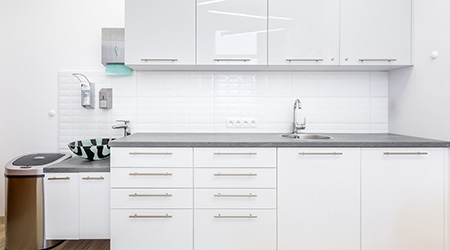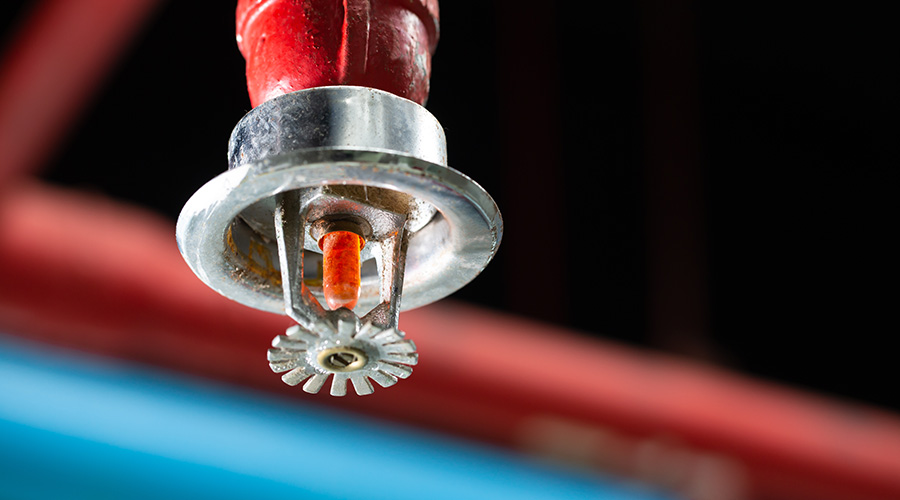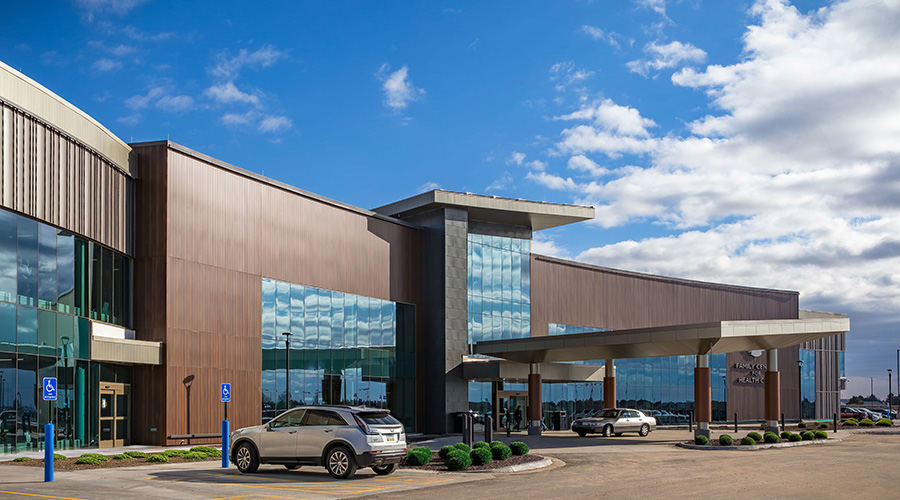Modular casework is a cost-friendly alternative to traditional millwork cabinetry in facilities. Rather than permanent, custom, built-in millwork, modular casework consists of cabinetry that is prefabricated and can easily be installed, adjusted, repurposed and reused across its lifespan.
Using modular casework in Indianapolis, Medxcel created a balanced triple bottom line by saving on purchase and installation costs (a financial benefit), diverting waste to landfills, and employing strategies to avoid chemicals of concern (environmental and social benefits to the community).
Benefits of modular
Modular casework contributes to a comprehensive waste-reduction strategy of source reduction, efficient design and standardization. It can be repurposed into new spaces during renovation projects to reduce costs and material use, minimizing damage to existing spaces when it is moved.
While using modular casework had been a guideline and goal, the recent project in Indianapolis allowed Medxcel to fully realize modular casework’s benefits and cost savings that had previously only been theorized.
The focus of the Indianapolis project was reuse. Medxcel had installed modular casework for a 24,000-square-foot facility several years ago. This year, the company was able to reinstall the furniture and casework in a new facility, compounding the cost-saving benefits of modular casework with other benefits such as longevity and product quality. The versatility and quality of modular casework allowed Medxcel’s supplier to offer a 12-year warranty, including labor.
Using modular casework minimizes design work by allowing facilities to select options from an approved, standardized catalog. Key to the success of the project was that the modular casework's custom appearance aligned to the new facility's design.
Eye on opportunities
The first step to using modular casework is devising consistent standards to be implemented across all facilities in your system. Understanding life-cycle costs aligned with a 12-year warranty period demonstrates product and labor cost savings.In Indianapolis, Medxcel employed careful planning to align electrical and plumbing locations with casework configurations. A pre-drywall inspection onsite and close coordination with mechanical and electrical trades ensured that plumbing fixtures and electrical outlets were synchronized and fed appropriately through the casework.The triple bottom line benefits of modular casework are:
Cost. The Indianapolis project was estimated to require a $690,000 investment for custom millwork production and installation. Reusing existing casework cost $333,000 for a savings of morethan 50 percent.
Waste reduction. “For this project, Medxcel was able to divert 35,000 pounds of waste from landfills, as would be the typical result of closing a facility,” saysBridget Randazzo, Medxcelsustainability analyst. “Through the more detailedand intentional prefabrication stage, we can ensure the product design and creation are consistent and can find a new home within Medxcel’s facilities, rather than landfills.”
Safer chemicals. Modular casework allows manufacturers to employ safer chemical strategies, such as low-VOC adhesives and finishes and formaldehyde-free substrates, without requiring the designer to create detailed project specifications.
“In order to comply with the Healthier Hospitals Initiative, facilities must be 50 percent compliant with formaldehyde and per- and polyfluoroalkyl substances (PFCS) usage,” Randazzo says. “With our partner, we were able to be 100 percent compliant and also use no volatile organic compounds.”
Implementing the strategy
The next step to implementing modular casework is to examine options with the array of products and vendors available. Then, narrow the selection to a smaller list of furniture and casework partners based on project criteria and budget.
Medxcel uses its project management expertise to engage modular casework vendors early in the process to learn about product innovations, including less fabrication time required for factory-built casework. Visiting showrooms and testing products under consideration is time well spent. Understanding life cycle costs helps the project team appropriately capture the financial benefits of modular products.
By focusing on efficiency and stability, Medxcel has confirmed that modular casework works well for new and existing projects by saving costs and leading to safe and sustainable project solutions.

 Fire Protection in Healthcare: Why Active and Passive Systems Must Work as One
Fire Protection in Healthcare: Why Active and Passive Systems Must Work as One Cleveland Clinic Hits Key Milestones for Palm Beach County Expansion
Cleveland Clinic Hits Key Milestones for Palm Beach County Expansion Emanuel Medical Center Caught Up in Data Breach
Emanuel Medical Center Caught Up in Data Breach Assisted Living Facility Violated Safety Standards: OSHA
Assisted Living Facility Violated Safety Standards: OSHA McCarthy Completes Construction of Citizens Health Hospital in Kansas
McCarthy Completes Construction of Citizens Health Hospital in Kansas